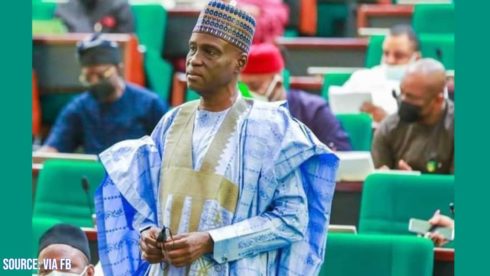In a landmark decision, Justice James Omotosho of the Federal High Court in Abuja annulled the impeachment of Phillip Shaibu as the Deputy Governor of Edo State. The ruling, delivered on Wednesday, found that the Edo State House of Assembly had not adhered to due process in its impeachment proceedings against Shaibu. Justice Omotosho emphasized that the legal requirements for such a significant action were not met, rendering the impeachment invalid.
The court’s judgment underscores the importance of following constitutional procedures in legislative actions. By failing to comply with these protocols, the Edo State House of Assembly’s move against Shaibu was deemed unlawful. This decision has significant implications for political processes in the state, reinforcing the necessity for adherence to established legal standards.
Appointment of New Deputy Governor Set Aside
Justice Omotosho also addressed the appointment of a new Deputy Governor, which had been made to replace Shaibu. In his ruling, he declared this appointment null and void, highlighting that it was based on the same flawed process that led to Shaibu’s impeachment. The court found the allegations of gross misconduct, which were the basis for the impeachment, to be legally untenable and insufficient to justify such a drastic measure.
This part of the ruling not only reinstates Shaibu but also calls into question the validity of the actions taken by the Edo State House of Assembly. It signals to other legislative bodies the critical importance of upholding the law and due process when making decisions that affect governance and leadership.
Security Measures for Shaibu’s Reinstatement
In addition to reinstating Shaibu, Justice Omotosho ordered the Inspector General of Police to provide necessary security for him. This directive is to ensure that he can safely resume his duties and perform the functions of his office without hindrance until the end of his tenure. The provision of security underscores the court’s recognition of potential threats or resistance Shaibu might face upon his return to office.
This comprehensive judgment is a pivotal moment in Edo State’s political landscape, reaffirming the judiciary’s role in upholding justice and due process. It serves as a reminder to legislative bodies and political actors of the supremacy of the rule of law and the necessity of following established procedures in governance.
Edo Assembly Impeaches Philip Shaibu as Deputy Governor
On April 8, 2024, the Edo State House of Assembly impeached Philip Shaibu during a tense plenary session held in Benin City, the state capital. The impeachment followed months of strained relations between Shaibu and Governor Godwin Obaseki, culminating in the adoption of a damning report by a specially appointed seven-man committee.
During the assembly’s proceedings, Majority Leader Charity Aiguobarueghian disclosed that the judicial panel’s report had identified serious allegations against him, including the unauthorized disclosure of government secrets. While the panel did not find sufficient evidence to support perjury charges, it concluded that Shaibu’s actions constituted misconduct justifying his removal from office.
The impeachment decision, rooted in political and administrative discord, reflects broader tensions within the Edo State government. This development has sparked public debate and raised questions about the implications for governance and political stability in the state, particularly as it approaches the next electoral cycle.
Legal and Political Implications of the Court’s Decision
Justice Omotosho’s ruling to reinstate Philip Shaibu highlights the judiciary’s pivotal role in safeguarding due process and constitutional governance. By nullifying the impeachment and restoring him to his position, the court has set a precedent that reinforces accountability and procedural integrity in executive-legislative relations within Edo State.
Politically, the reinstatement of Shaibu may influence dynamics within the ruling party and affect strategic alliances ahead of upcoming elections. It underscores the importance of adherence to legal frameworks and transparency in the exercise of political authority, potentially reshaping the landscape of governance in Edo State.
As stakeholders react to these developments, attention will likely focus on the Assembly’s response and the broader implications for governance and stability in Edo State. The judicial decision marks a critical juncture in the state’s political trajectory, with ramifications that could resonate beyond its borders, shaping perceptions of democratic practices and institutional integrity.
Table of Contents
Discover more from OGM News NG
Subscribe to get the latest posts sent to your email.













